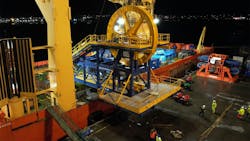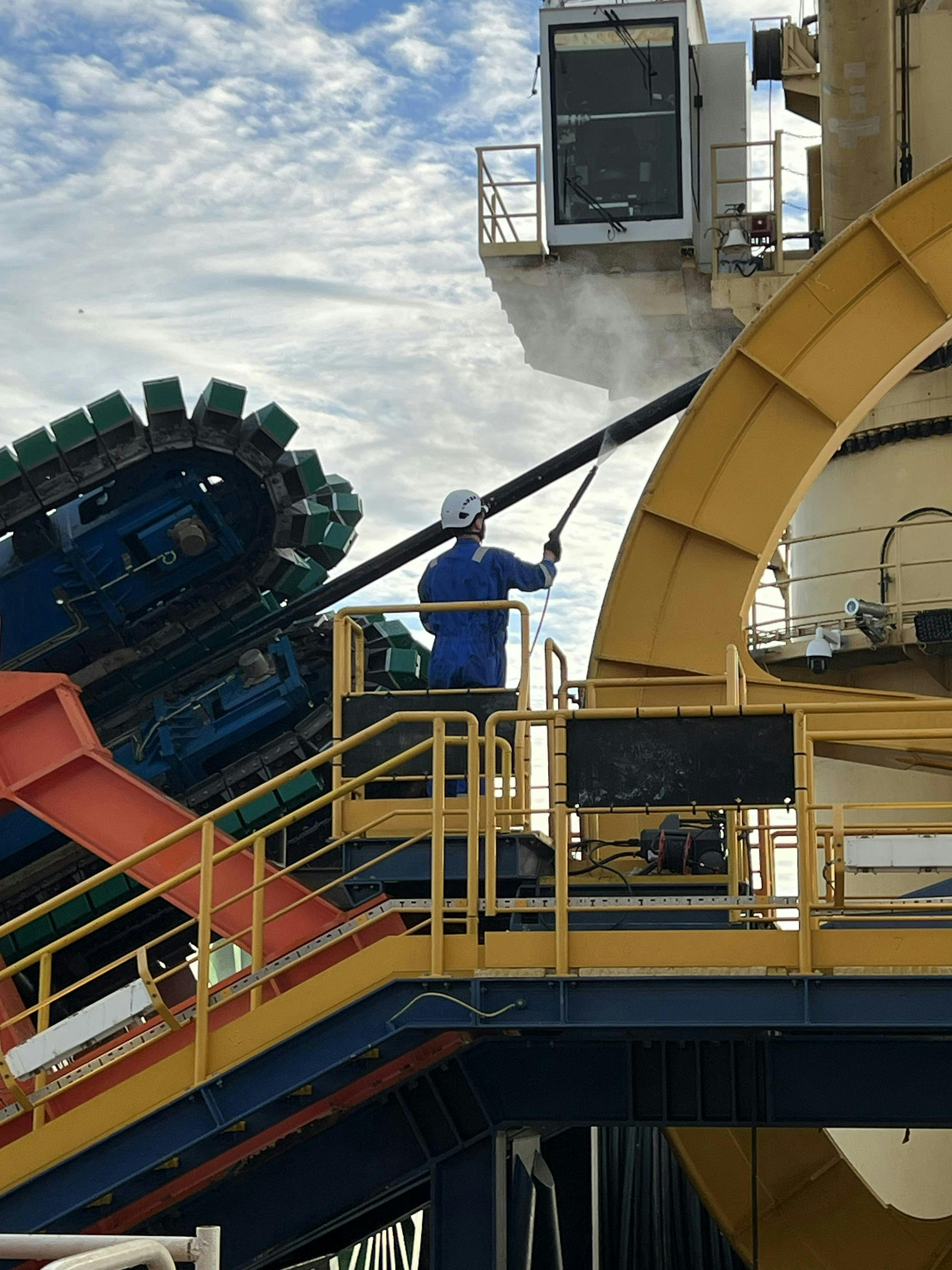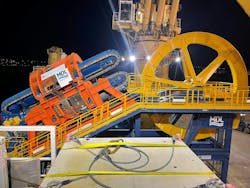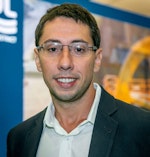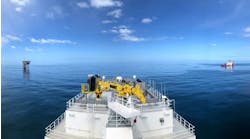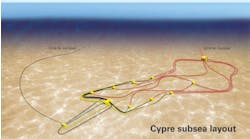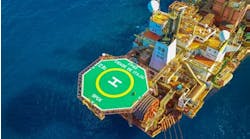ROG.e 2024: Portable system enables efficient decommissioning
By Yuri Mendes Martins, MDL
Operators and EPIC companies around the globe are increasingly looking for technologies and solutions to decarbonize their operations and make them safer, faster and more automated.
In Brazil, alongside ongoing investment in field development, the decommissioning sector has also been growing, owing to the maturity of oil and gas infrastructure. The deepwater nature of where many of these operations are scheduled poses a budgetary challenge. At the same time, the Brazilian government encourages the participation of local content in decommissioning activities, and Maritime Developments Ltd. (MDL) has been enabling local players in overcoming the deepwater retrieval challenge.
Case study
Throughout 2023 and 2024, MDL has supported a Brazilian contractor in cost-efficient SURF recovery operations using a modular spread on an offshore support vessel (OSV). MDL used its portable Horizontal Lay System (HLS) as the base case. However, engineering studies with the product specifications, combined with the environment in which the system would operate, highlighted limitations on handling the recovered pipes over a chute.
Due to the friction between the flexible and the chute, the system's recovery capacity was dramatically reduced, even when using a high line pull-capacity tensioner. The solution to reduce friction was to replace the chute with a wheel, giving birth to MDL's Wheeled Horizontal Lay System.
The system maintains all the HLS features facilitating recovery of various lengths and diameters of products, including an integrated hang-off for handling end fittings; davits for overhead handling of products; integrated work platform for over the side or moonpool scopes; and an adjustable wheel position to accommodate various product diameters.
Incorporating a wheel into the HLS design boosts recovery capacity to match the tensioner's capability without extra space or weight from additional steel structures. The two-point contact from the wheel profile on the product results in reduced minimum bend radius requirements, opening up the outer diameter window for wider application.
In addition, the compact system was designed to easily move between vessels and can be deployed for both flexible recovery and installation scopes, making it a highly capable enabler for busy markets such as Brazil, in case of construction vessel shortages.
MDL also assisted the Brazilian contractor with project management and engineering services during the mobilization of the OSV in port. Services included deck layouts, lift planning and sea fastening, and managing quayside operations.
The MDL team ensures the most optimal equipment specification, deck arrangements and even execution methodology when working with spot-market or bare-back tonnage. Storyboards and visualizations bring the whole package to life long before the construction phase to get all stakeholders’ buy-in.
Conclusion
MDL has been enabling constrained projects around the world through a combination of out-of-the-box thinking and highly capable portable technology deployed on locally available bare-back vessels.
Whether it is a new offshore field or one in advanced phase, MDL can provide support from feasibility studies and front-end project engineering to design, equipment supply and operation execution.
